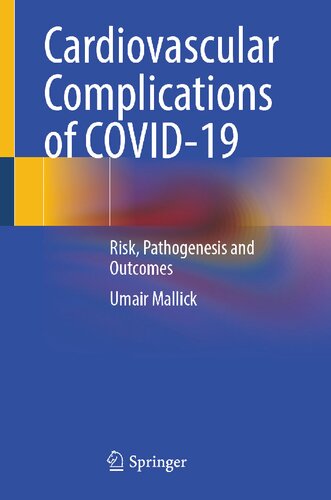

Most ebook files are in PDF format, so you can easily read them using various software such as Foxit Reader or directly on the Google Chrome browser.
Some ebook files are released by publishers in other formats such as .awz, .mobi, .epub, .fb2, etc. You may need to install specific software to read these formats on mobile/PC, such as Calibre.
Please read the tutorial at this link. https://ebooknice.com/page/post?id=faq
We offer FREE conversion to the popular formats you request; however, this may take some time. Therefore, right after payment, please email us, and we will try to provide the service as quickly as possible.
For some exceptional file formats or broken links (if any), please refrain from opening any disputes. Instead, email us first, and we will try to assist within a maximum of 6 hours.
EbookNice Team

Status:
Available0.0
0 reviewsThis book discusses the evidence behind the relationship between COVID-19 and heart disease based on emerging state-of-the-art data. The rapid and unexpected global spread of the COVID-19 has revealed proportional levels of cardiovascular and metabolic complications. A myriad of pathogenetic mechanisms has come to the surface. There is still much research required to define whether cardiovascular disease causes COVID-19 complications or that cardiovascular disease appears as a result of the infection and which mechanisms are responsible. With cardiovascular and metabolic diseases already at pandemic levels and expected to increase further, this book provides readers with an urgent and thorough analysis of this association.
Cardiovascular Complications of COVID-19: Risk, Pathogenesis and Outcomes provides answers to the increasing numbers of questions related to heart disease in COVID-19, highlighting the association between these pandemics and including risk factors, mechanisms and how these may impact diverse patients populations. It describes how COVID-19 impacts older patients and those with metabolic illnesses such as obesity and diabetes mellitus, while providing an overview of the observed gender dichotomy among patients. It therefore represents an essential resource not only for all cardiovascular physicians but also for any healthcare professionals managing patients with these diseases or those exploring COVID-19.